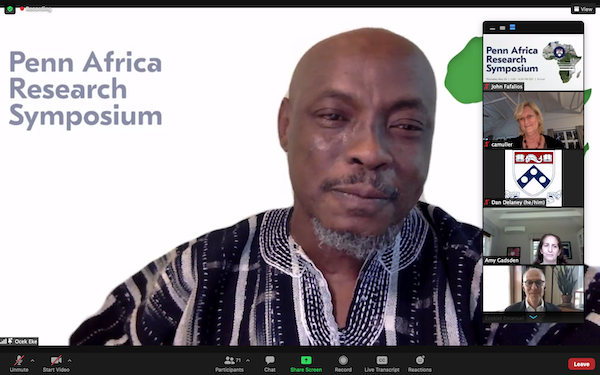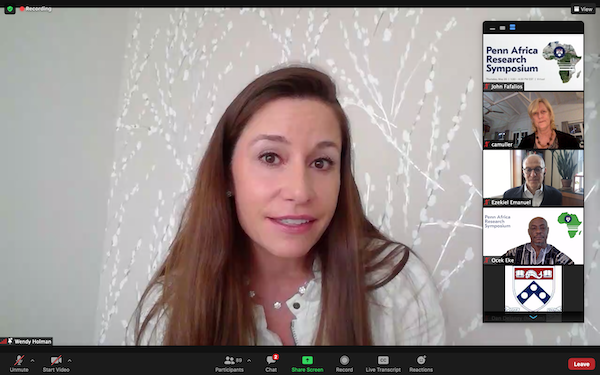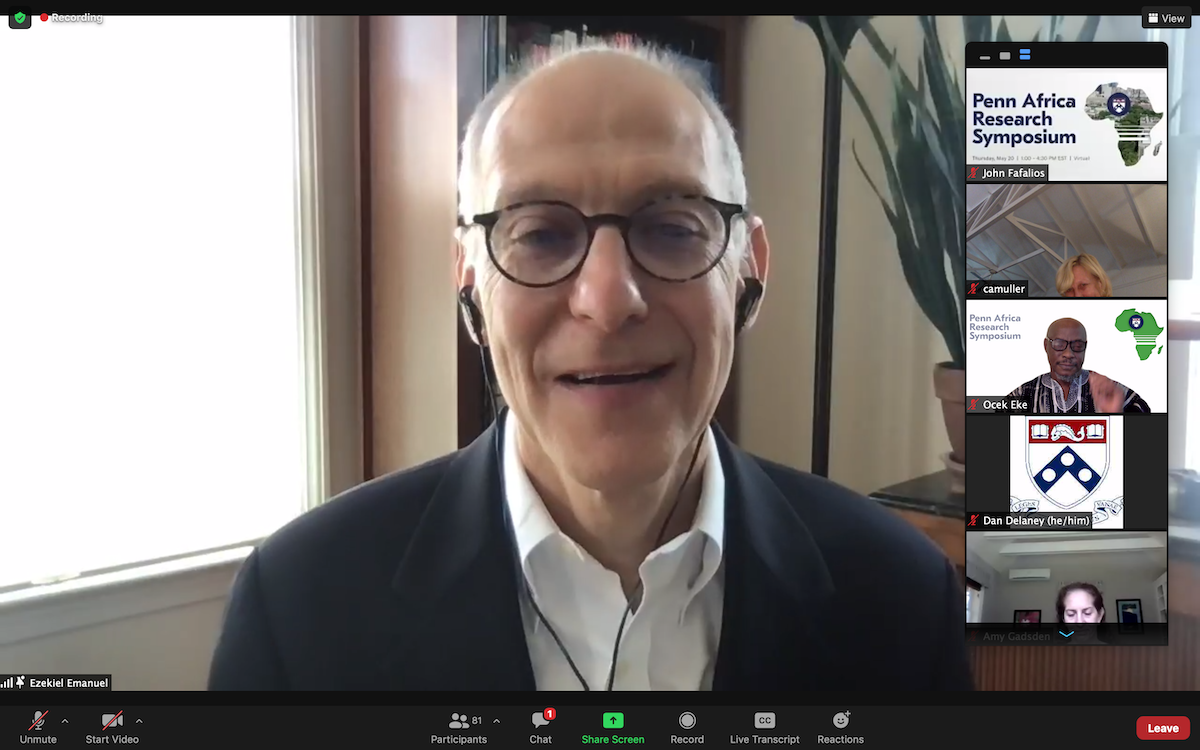A $5 million gift from Wendy and Wayne Holman will create a new initiative at Penn aimed at dramatically expanding financial aid and enhancing opportunities for faculty and students to engage in research and teaching in and about Africa.
The Holman Africa Initiative was announced at the start of the inaugural Penn Africa Research Symposium organized by Penn Global, which offered more than 40 participants from across the University an opportunity to virtually present their wide-ranging research on Africa during a three-hour event. The newly launched event was similar to previous Penn Global-organized symposia on China, India, and Latin America that highlight research from schools across Penn.
Ezekiel J. Emanuel, vice provost for global initiatives, said in comments at the symposium’s start that the Holman gift “is a tremendous moment, and it fits squarely within Penn’s global mission, which has been for over 10 years to engage the world, to engage students, and to produce cutting-edge research, even in these moments of excessive nationalism and xenophobia.
“We are not backing down from our commitments to the globe,” he said. “This Holman Initiative is just another indication of how we will continue to build and commit ourselves to ever larger parts of the globe.”
The gift will enable Penn to create a scholarship for African students in STEM fields, provide a resource acquisition fund and a research fellowship for African health and medicine research at Penn Libraries, and create an Africa Research and Engagement Fund, which will complement the existing China, India, and Global Engagement Funds and enable the University to support groundbreaking interdisciplinary research and teaching in and on Africa, he said.
Wendy Holman, a 1997 graduate of the Wharton School and CEO of Ridgeback Biotherapeutics, told attendees her company is committed to health in Africa and to fighting disease. The company has developed an Ebola treatment and is working on COVID-19 treatments. Her work on the ground in the Democratic Republic of Congo during the 2014 Ebola epidemic inspired her company’s efforts.
“I wanted to have a direct impact on health and human suffering, not just for commercial markets but for patients who needed champions,” she said. “I’m so happy to be part of this and to hear about all the work that you’re doing, and I look forward to so many more opportunities to be a part of this.”
The symposium got underway after welcome remarks from music professor Carol Muller of the School of Arts & Sciences, who has published widely on South African music, and Ocek Eke, director of Global and Local Service-Learning Programs in the School of Engineering and Applied Science. In this role, Eke is responsible for organizing and overseeing service learning courses in Rwanda and Ghana, among other nations around the globe. He recounted a successful effort in Rwanda in which he and Penn engineering students helped get an unused water filtration system up and running at a hospital that lacked clean water.
“The point is that we have done so much good with Penn Global, and of course that comes from leadership. Good leaders inspire good followers,” he said.
Muller said she is “thrilled” about Penn’s expanding efforts in Africa.
“It is important that we should not be in the business of saving Africa but of partnering with and learning from the people of the African continent,” Muller said. “We need to continue building partnership capacities with Penn African and diaspora students, undergraduate and graduate, and Penn faculty and staff from the African continent and its diaspora, as well as those who are not African born, all of whom are doing excellent research in communities and science in Africa. This is what we’re going to hear about today.”
Presenters included graduate students, postdocs, visiting researchers, and alumni, as well as faculty. The topics ranged from efforts to create a malaria breathalyzer test to the effects of COVID-19 school closures on children in Ghana to developing a hospital management training program in Kenya.
“This symposium is a culmination of all the efforts that we have made, and it’s a wonderful thing to see this community blossom and congeal as a real force,” Emanuel said. “This is a huge achievement and represents the enormous amount of interest and investment Penn has in Africa.”










